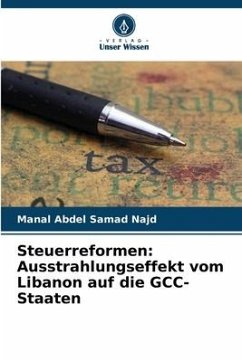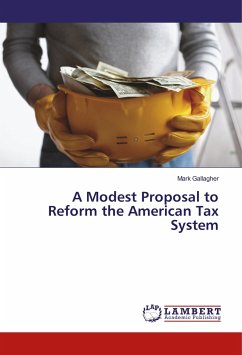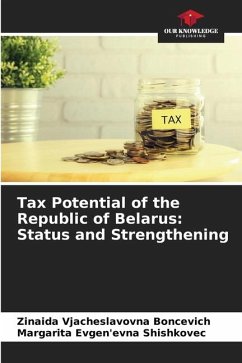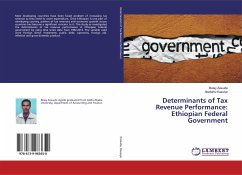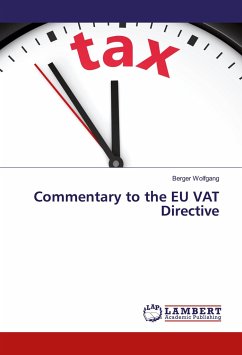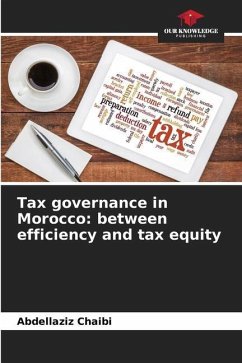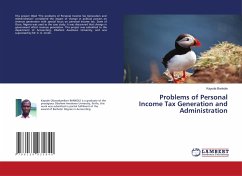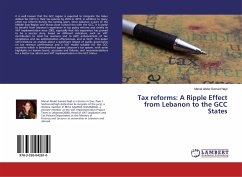
Tax reforms: A Ripple Effect from Lebanon to the GCC States
Versandkostenfrei!
Versandfertig in 6-10 Tagen
24,99 €
inkl. MwSt.

PAYBACK Punkte
12 °P sammeln!
It is well known that the GCC region is expected to integrate the Value Added Tax (VAT) in their tax systems by 2018 or 2019, in addition to many other tax reforms during the coming years. Since Lebanon is part of the Middle East Region and shares close cultural ties with the GCC, it is useful to benefit from Lebanon's experience in tax policy reforms and chiefly its VAT implementation since 2002, especially that this experience has proved to be a success story, based on different indicators, such as: VAT contribution to total tax revenues and to GDP, enhancement of tax compliance and tax admi...
It is well known that the GCC region is expected to integrate the Value Added Tax (VAT) in their tax systems by 2018 or 2019, in addition to many other tax reforms during the coming years. Since Lebanon is part of the Middle East Region and shares close cultural ties with the GCC, it is useful to benefit from Lebanon's experience in tax policy reforms and chiefly its VAT implementation since 2002, especially that this experience has proved to be a success story, based on different indicators, such as: VAT contribution to total tax revenues and to GDP, enhancement of tax compliance and tax administration effectiveness, and so forth. This paper will introduce an analysis about a significant impact of public governance on tax revenue performance and a VAT model suitable for the GCC countries which is benchmarked against Lebanon's tax system, with some highlights on lessons learnt, successes and failures, and recommendations for a better tax reform and VAT implementation in the GCC States.



